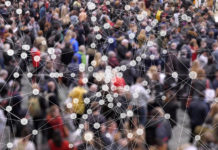Tag: disinformation
Becoming truth tellers on post-truth social media
American President Joe Biden was obviously upset with Meta when, in mid 2021, he accused it of “killing people” for its seeming tolerance of so much Covid-19 misinformation. He backed down a little by clarifying that he wasn’t blaming Facebook itself, but the “bad information” they allowed on the site. Other have argued we live in a post-truth world.
The war in Ukraine as a struggle between interpretations
It has been said before that the wars of the 21st century are hybrid wars, in the sense that, in addition to the environments in which the hostilities have taken place until now–land, water and air–a fourth environment has appeared: the virtual one.
Tutorial: How to easily spot fake news
In an interview published by Inc.com, 24-year-old Romanian Ovidiu Dobrota, from Oradea, Romania, boasted that his fake news site Ending The Fed had a substantial impact in supporting Donald Trump in the presidential elections. According to a Buzzfeed analysis, his boasting is well-founded.
Real information is dialogue
I request from my colleagues at the ST.N editorial office at least three sources for news and at least two books for the analysis topics: one for and one against. Ideally, the reading of the first two books will give rise to the desire to look for at least two more, so that the differences are clearer. After that, there will be a need for opinions that try to reconcile or criticize the two sides. This is how the documentation process begins.
Snail racing: The strange social dynamics dictated by social networks
Social interactions and the tools that facilitate them are changing the world in ways that even now, after all this time, we cannot anticipate.
Chernobyl: The cost of lies
On April 26th 1986, reactor 4 at Chernobyl nuclear power plant in Ukraine exploded. The effects were catastrophic—it was the worst nuclear disaster in history. The explosion let out the equivalent of 500 Hiroshima bombs-worth of radiation, and the area around Chernobyl—including the town of Pripyat—is now uninhabited. It will be unsafe to live there for the next 20,000 years.
How lethal is COVID-19, and other (un)answered questions
There have now been over 12 million cases of COVID-19 infection globally, and half a million deaths. Researchers are constantly looking for new and better information to reduce the uncertainty around the virus.
COVID-19: Why and how do masks, gloves and other protective equipment help?
I leave the house with gloves and a mask on. When I return, I clean my shoe soles and I wash my gloves with disinfectant. Then I take off my clothes, place them somewhere outside, take off my gloves and mask and wash my hands. Is this normal? Or am I a germophobe?
COVID-19: How do you recognise a conspiracy theory in a pandemic?
The Colorado beetle that threatened the potato crop of the former GDR in 1950 might have been an American method of sabotage against the Eastern bloc. A sinister German plot might have been the cause of the Spanish flu. Perhaps AIDS emerged as a biological weapon developed by the United States and has been tested on prisoners and minorities. Every crisis humanity has ever faced has had its own conspiracy theories and its own conspiracy theorists.
COVID-19: The new mirror in which we look at our parents
How can we encourage the elderly during this time? How can we help them understand that we don't want to lose them and that, although it's hard for them, we didn't abandon them. I have an elderly mother and, honestly, it would help me a lot. Can you write for me?
An impossible inventory of the most widespread fake news about COVID-19
The epidemic of false information in this worldwide pandemic is even more infectious than the virus itself. Fortunately, there is a vaccine for this epidemic of fake news: quality information and information filters. However, not everyone has been vaccinated. Here is an immunization effort.
COVID-19: Defending ourselves against fake news and panic
The fight against the new coronavirus is accompanied by several parallel fights, including the fight against fear, which can turn into panic—one of the most dangerous social phenomena.























